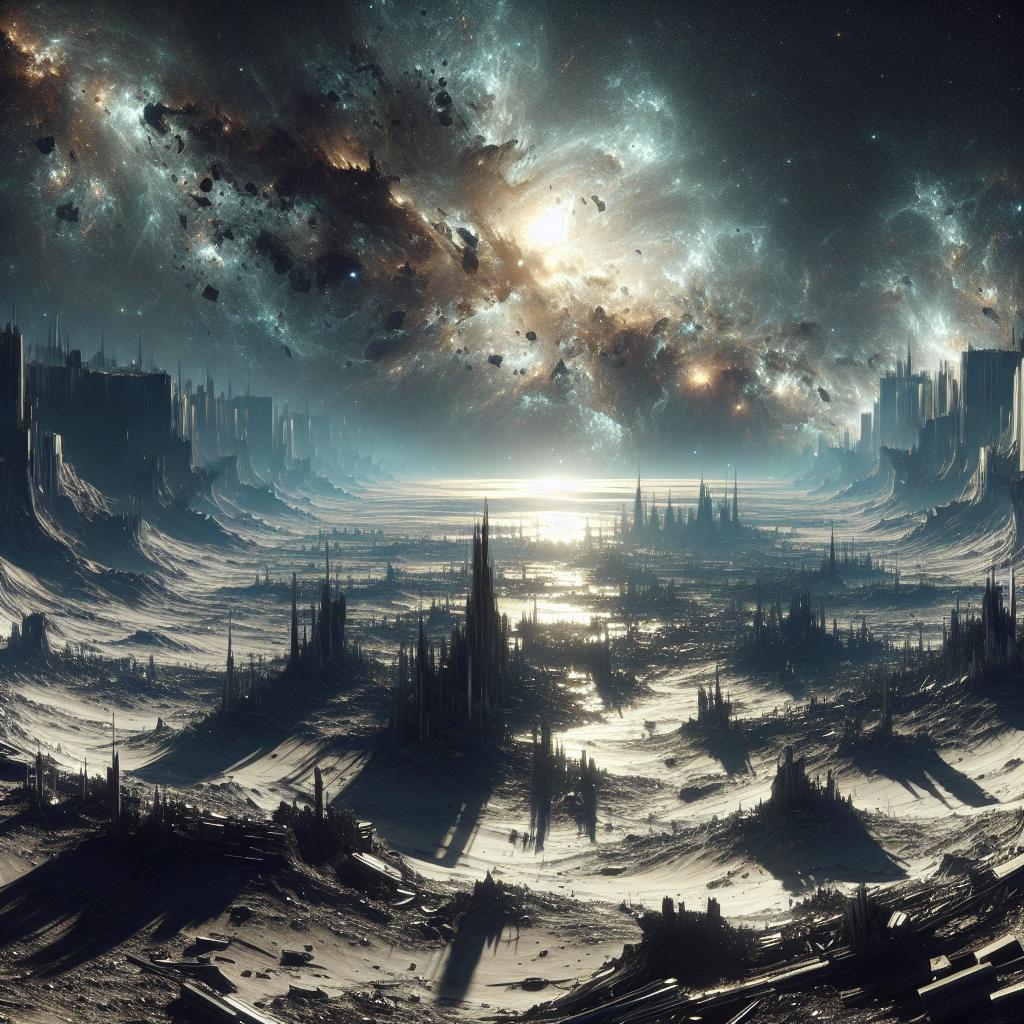
Unveiling the Reality of a Fallen Creation: A Christian Perspective
Published: 18 June 2024
Is the Whole Creation Fallen?
Introduction
Many Christians believe in the concept of a fallen creation, asserting that the effects of Adam's fall extend beyond humanity to the entire universe. This view suggests that the curse resulting from Adam's sin impacted all aspects of creation and brought about decay, suffering, and death. However, there are differing interpretations on this matter. In this article, we will explore the idea of a fallen creation and examine the biblical and theological basis for this belief.
1. The Meaning of "Whole Creation"
One point of contention is the interpretation of the phrase "whole creation" in Romans 8:18–22. Some argue that this phrase is an idiom used by the apostles to refer to all people on Earth rather than everything in the entire universe. However, a closer examination reveals that the phrase "whole creation" indeed refers to all non-sentient, moral-decision capable creation, excluding humans and angels. This understanding is supported by Paul's subsequent mention of believers in verse 23 and his exclusion of angels in verse 20. Therefore, it is reasonable to conclude that "whole creation" encompasses all non-human physical creation.
2. The Universality of the Fall
Genesis describes the creation of the universe and emphasizes that God gave man dominion over the entire creation (Genesis 1:26–28). There is no indication in Genesis of a separation or divide within creation that would exempt certain parts from the effects of the Fall. Therefore, it is logical to infer that all aspects of creation fell because of man's dominion over it.
3. Destruction and Re-Creation
The book of Revelation speaks of both the heavens and the earth being destroyed. This destruction is likened to God rolling up Creation like a scroll or a mantle. Furthermore, Revelation mentions the restoration of Creation, referencing the Tree of Life from Genesis. This connection between Genesis and Revelation suggests that just as the Genesis Creation pre-Fall was subjected to the curse, the restoration in Revelation implies a complete re-creation of the universe. All major eschatological views support this understanding, pointing to a fervent heat destroying the current universe and a re-creation in its place.
4. God's Relationship with Creation
While God has a relationship with all aspects of His creation, Scripture teaches that His relationship with humanity is unique due to man being created in His image. Although God's providence extends to the rest of creation, the redemption of all creation is intrinsically tied to the salvation of mankind. Creation itself groans in its current state of ineffectiveness due to sin and eagerly awaits liberation alongside the revealing of the sons of God (Romans 8:19–23). This anthropocentric Gospel leaves no room for sentient moral beings on other planets.
5. Size and Significance
The vastness of the universe often leads to speculation about the existence of intelligent alien life. However, from a Christian perspective, size is irrelevant to God. The universe is not big to Him, as He exists outside its dimensions and is not bound by it. The assumption that God would fill the universe with other life forms reflects human logic imposed upon God. Isaiah 55:9 reminds us that God's ways are higher than our ways, and it is unreasonable to assume that God would do things our way. The uniqueness and worth of human souls far outweigh any considerations of size or distance in the universe.
6. Biblical Interpretation and Logic
It is essential to interpret Scripture using sound logic while recognizing that our logic is the same as God's since we are made in His image. Some argue that humans cannot subject their logic upon God, but this assumes a difference between "God's logic" and "human logic." If there were such a difference, it would render the revelation incomprehensible. God's logic is not subject to fallacies, and as we seek to love God with all our minds, we should not shy away from using logical reasoning in our interpretation of Scripture.
Why This Matters
The concept of a fallen creation has theological implications for understanding the nature of suffering, death, and redemption. Recognizing that all aspects of creation were affected by the Fall highlights the magnitude of sin's consequences and underscores the need for redemption. Additionally, acknowledging the unique relationship between God and humanity emphasizes the special role that mankind plays in God's plan of salvation.
Think About It
- How does the belief in a fallen creation affect your understanding of suffering and death in the world?
- Consider the significance of God's unique relationship with humanity. How does it impact your view of humanity's role in God's plan?
- Reflect on the idea that size is irrelevant to God. How does this perspective challenge your assumptions about the universe and intelligent alien life?
In conclusion, the belief in a fallen creation is rooted in biblical interpretation and theological reasoning. While there may be differing views on this matter, a careful examination of Scripture supports the notion that all aspects of creation were affected by the Fall. Understanding the implications of a fallen creation can deepen our appreciation for God's redemptive plan and our role as stewards of His creation.
